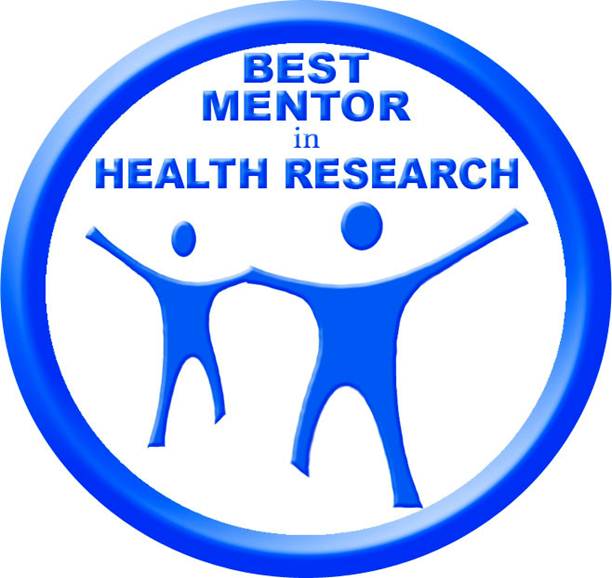- Details
- Category: Latest News
INVITATION FOR NOMINATION
Keio University Medical Science Fund is now accepting nominations for the Keio Medical Science Prize 2015. Established in 1996, Keio University annually awards the Keio Medical Science Prize to recognize researchers who have made an outstanding contribution to the field of medicine or life sciences.
Keio Medical Science Prize 2015
Criteria
· Nominee must have a breakthrough in the fields of medicine and life sciences, and/or related fields.
· Nominee must have an outstanding contribution to basic and clinical medicine.
Selection
13 selection committee members and over 60 specialists from various fields, within and outside Keio University, will select laureates through rigorous review process.
Eligibility
Nominees must be currently active in their field of research, and be expected to make future contributions to the field.
Prize
Each laureate receives a certificate of merit, medal and a monetary award of 10 million yen.
Nomination
· Individuals are limited to one nomination each.
· Institutions or organizations may make as many nomination as they can.
· In case of multiple nominations, nominations are limited to One nominee per research theme.
Note: A nomination should be for one researcher. Keio University does not accept nominations for groups.
Nomination Materials
· Nomination form (*can be downloaded from http://www.ms-fund.keio.ac.jp/prize/)
· Nominee’s curriculum vitae
· Nominee’s bibliography
· Copy of major publications (maximum of 5, each major publication must be a separate PDF file.)
Please send all materials listed above in separate PDF format files via email to
This email address is being protected from spambots. You need JavaScript enabled to view it., or by post to:
Office of the Keio University Medical Science Fund
35 Shinanomachi, Shinjuku-ku, Tokyo 160-8582, Japan
Online nomination is also available at http://www.ms-fund.keio.ac.jp/prize/index.html
Deadline
Nominations for 2015 must reach the Office of the Keio University Medical Science Fund by March 10, 2015.
For more information, visit http://www.ms-fund.keio.ac.jp/prize/index.html
- Details
- Category: Latest News

The Global Forum on Research and Innovation for Health will take place in Manila, from 24-27 August 2015, bringing together all stakeholders who play a role in making research and innovation benefit health, equity and development.
Forum 2015 provides a platform where low- and middle-income countries take prime position in defining the global health research agenda, in presenting solutions, and in creating effective partnerships for action.
This event will use a mix of informative and interactive discussions, workshops, and networking sessions structured around six major themes to showcase solutions to the world's unmet health needs through research and innovation.
Programme pillars and themes
I. Increasing the Effectiveness of Research and Innovation for Health (through):
· Social accountability
· Increasing investments
· Country-driven capacity building
II. The role of research and innovation (in improving):
· Food safety and security
· Health in mega-cities
· Disaster risk reduction
Registration will open on January 12, 2015. Please also note that there will be a reduced ‘early-bird’ registration fee available until June 19, 2015.
Get involved in shaping the programme for this meeting by submitting an abstract or proposing an organized session.
The Forum 2015 organizers call for abstracts and session proposals from policymakers, business and community leaders, researchers and scholars, non-profit and international organizations, and any others from various disciplines and sectors whose work addresses key concerns in research and innovation for health and development.
For further information, please contact us or visit: www.forum2015.org.
- Details
- Category: Latest News
The Department of Science and Technology III as the lead convenor of the Central Luzon Health Research and Development Consortium (CLHRDC) has continuously strengthened the system of collaboration within member institutions in Region III to develop and enhance their capacity in doing health research that will improve the health conditions of the people in Central Luzon. The different committees of the CLHRDC namely Research Management Committee (RMC), Ethics Committee (EC), Research Utilization Information and Communication Committee (RUICC) and Capacity Building Committee (CBC) have all actively pursued their functions to ensure that all the activities stipulated in the 2014 work plan were accomplished.
The Research Management Committee (RMC) made a year round call for proposals to increase the number of health researches that will be approved and funded by various funding agencies. A total of 16 proposals were submitted and evaluated. The CBC on the other hand, has organized trainings on research that enhanced the capability of member-institutions to come up with proposals. Eleven proposals are expected to be submitted in January 2015.
As part of the RMC’s functions, six research projects approved and funded by PCHRD and DOH were monitored which includes the following: “Compliance of Health Care Facilities on Waste Management Protocols in Region III by NEUST”; “The Anti-Hyperglycemic Properties of the Ethyl Acetate and Hexane Extracts from Kondol Leaves (Benincasa hispida Cogniaux) – AUF/PAC”; “Kinect-Operated Bed: Innovative Posture Detection and Bedsores Preventing Device – SPCF”; “Health Seeking Behavior of Families Identified as Poorest by National Household Targeting System – Poverty Reduction (NHT-PR) in Region III – WUP”; “Assessment of Out-Patient Benefit Package of PhilHealth in Region III-WUP”; “Perinatal Beliefs and Practices of Aeta Mothers in Central Luzon-WUP”.
The Ethics Committee on the other hand, is working for the establishment of an Ethics Review Board in member institutions who do not have their own to strengthen their research capacity.
The RUICC for their part, conducted “Technology Forum” that aimed to provide the participants with possible research areas in ICT applications in health as part of the advocacies of the consortium to increase the number of health-related proposals. A Regional Symposium on Health Research Projects in Region 3 was also conducted by the committee to serve as an avenue for information dissemination and utilization of research findings of health researches conducted in the Region. CLHRDC member – institutions also presented their completed researches, and the 1st and 2nd placers on both oral and poster presentations represented Region III in the 8th Philippine National Health Research System Week Celebration in August this year.
The following were declared winners in their respective categories:
Oral Research Presentation Professional Category
1st place - Dr. Neil C. Tanquilut, (PAC)
Hypoglycemic Activity of Antidesma bunius L and Mollugo oppositifolia L Fresh and Alcoholic Extracts in the db/db Diabetic Mouse Model
2nd place - Prof. Erwin C. Mina, (TSU)
Risk Evaluation of the Toxicity of Tubang Amerikano (Jathropa multifida Linn.) Leaf Extract
3rd place - Dr. Remedios D. San Jose (PAC)
Gross and Histopathological Evaluation of Selected Internal Organs of Alloxan–Induced Diabetic Rats (Rattus norvegicus) Treated with White Gourd Melon (Benincasa hispida Cogn.) Extract
Oral Research Presentation Student Category
1st place - JeuzKoz A. Geluz, et al. (AUF)
Detection of Potential Anti-Quorum Sensing Activity in Common Santan (Ixora chinensis Lam.) Leaf Extracts on Pseudomonas aeruginosa
2nd place - Mara Louella P. Sangilan, et al. (AUF)
Determinaton of the Anti-Angiogenic Activity of White Angel (Holorrhena antidysenterica) Leaf Extract Using Chorioallontoic Membrane Assay
3rd place - Daniel Ian M. Berber, et al. (BPSU)
Electronic Medical Record Using RFID Technology
Poster Research Presentation (Student Category)
1st place - Johnna N. Oliveria, et al. (BPSU)
Blood Glucose Monitoring System with SMS Technology
2nd place - Lei Vanette Alangui (AUF)
The Efficacy of Basil (Ocimum bacilicum) and Bay (Laurus nobilis) as Repellent against Common Houseflies (Musca domestica)
For 2016, CLHRDC is encouraging member institutions to do more collaborative researches to maximize resources, conduct quarterly meetings for the development of their planned activities, sponsor training activities, attend national and international conferences, publish research outputs in international refereed journals (ISI/Scopus Index), assist member institutions organize their own Ethics Review Boards and continuously disseminate information about the recent activities and accomplishments of the consortium through promotional activities in local TV and radio stations, websites of member institutions and regional newspapers. Likewise, CLHRDC will strengthen linkages with related professional organizations, LGUs and other agencies.
- Details
- Category: Latest News
The National Academy of Science and Technology (NAST), Philippines, as the highest recognition body on science and technology in the country is now accepting nominations for the various NAST and DOST awards, namely;
I. NAST AWARDS
(a) Outstanding Young Scientist (OYS) Awards
(b) NAST Environmental Science Award
(c) TWAS Prize for Young Scientist in the Philippines (Mathematics)
(d) NAST Talent Search for Young Scientists
(e) Nast Award for Outstanding Research in Tropical Medicine
(f) Outstanding Scientific Paper Awards
(g) Outstanding Book and / or Monograph Awards
(h) Best Scientific Posters
(i) Dr. Geminiano T. de Ocampo Visionary Award for Medical Research (GTOVAMR)
II. DOST AWARDS
(a) Outstanding Technology Commercialization (Gregorio Y. Zara Medal)
(b) Outstanding Research and Development Award
(b.1) for Basic Research (Eduardo A. Quisumbing Medal)
(b.2) for Applied Research (Julian A. Banzon Medal)
(c) Outstanding Science Administrator Award (Dioscoro L. Umali Medal)
(d) Magsaysay Future Engineers/ Technologists award (MFET)
For Inquiries, you may contact the NAST Secretariat
NATIONAL ACADEMY OF SCIENCE AND TECHNOLOGY, PHILIPPINES
3F Science Heritage Bldg. DOST Cmpd. Bicutan, Taguig City, Metro Manila
Direct Line: 8373170; Trunkline: 8372071 loc 2170
Email: This email address is being protected from spambots. You need JavaScript enabled to view it. or This email address is being protected from spambots. You need JavaScript enabled to view it.
- Details
- Category: Latest News

Submission of Entries to Consortia/PSS: January 7, 2015
Submission of Entries to PCHRD-DOST: January 15, 2015
For inquiries, please call Ms. Camille Louise S. Sunglao at (045) 455-1733








